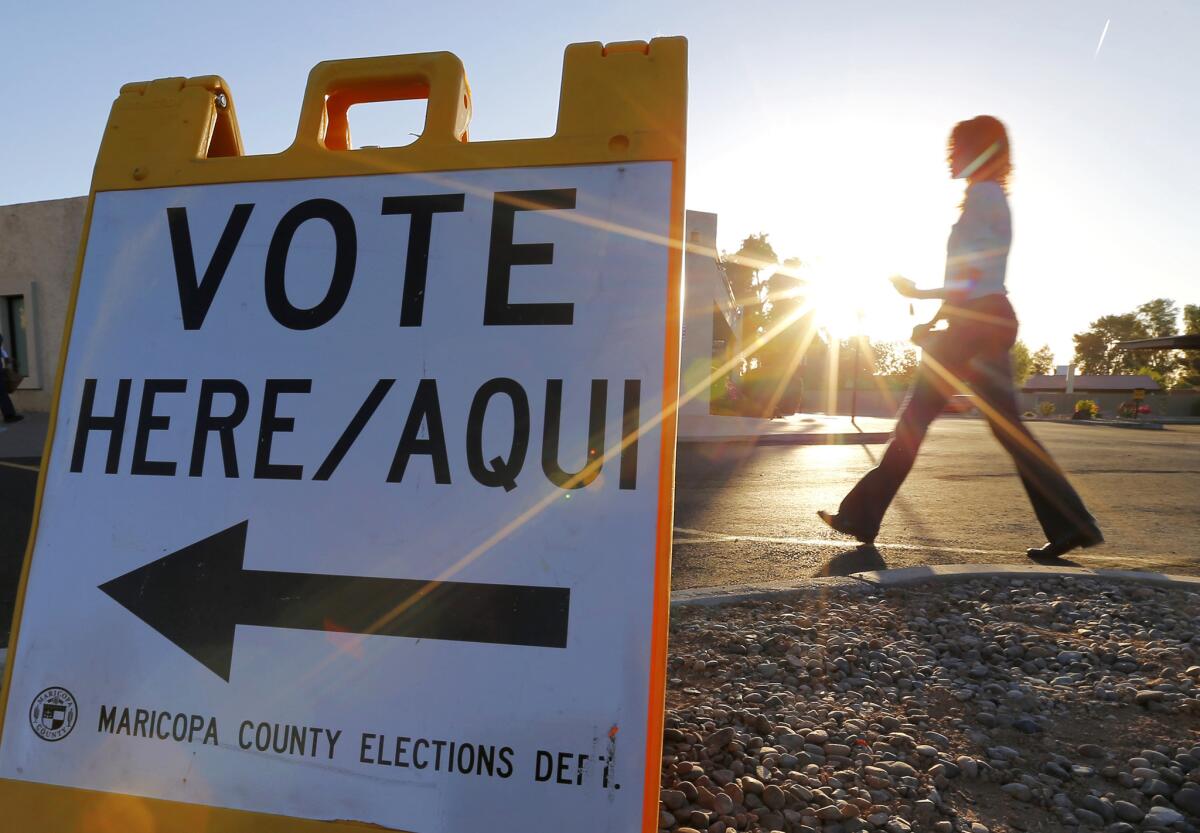In blow to Republican challenge, Supreme Court upholds Arizona redistricting

A voter arrives to cast her ballot in last month’s Arizona primary. On Wednesday, the Supreme Court rejected a challenge by Republicans who said an independent commission improperly redrew election boundaries.
- Share via
Reporting from Washington — A unanimous Supreme Court says an Arizona commission did not violate the principle of one person, one vote when it redrew the state’s legislative districts in a way that created some with more residents than others and improved the prospects for Democrats.
The justices on Wednesday rejected a challenge from a group of Republican voters who claimed the state’s Independent Redistricting Commission illegally packed GOP voters into some districts while leaving other Democratic-leaning districts with smaller populations.
A panel of federal judges upheld the new boundaries in 2014, despite finding that some commission members were trying to improve Democratic prospects in the districts. The judges ruled that the commission was trying to comply with a now-nullified provision of the Voting Rights Act.
See more of our top stories on Facebook >>
State officials argued that slight differences in population were not enough to violate the Constitution’s equal-protection clause.
Writing for the Supreme Court, Justice Stephen G. Breyer said the one-person, one-vote principle “does not demand mathematical perfection.” He said the challengers failed to show that “illegitimate considerations were the predominant motivation behind the plan’s population deviations.”
The high court requires a state’s legislative districts to have roughly equal numbers of people, but it has long said those numbers don’t have to be exact. Differences of less than 10% are presumed constitutional unless challengers can show they are the result of discrimination or other invalid reasons.
Arizona voters created the commission in 2000 to take on the politically charged job of drawing new maps every 10 years, instead of leaving it up to the Legislature.
ALSO
3 officials charged with multiple crimes in Flint water crisis
With New York wins, Hillary Clinton and Donald Trump aim at November
Minor mistakes by local political parties are looming larger in this year’s presidential election
More to Read
Sign up for Essential California
The most important California stories and recommendations in your inbox every morning.
You may occasionally receive promotional content from the Los Angeles Times.










